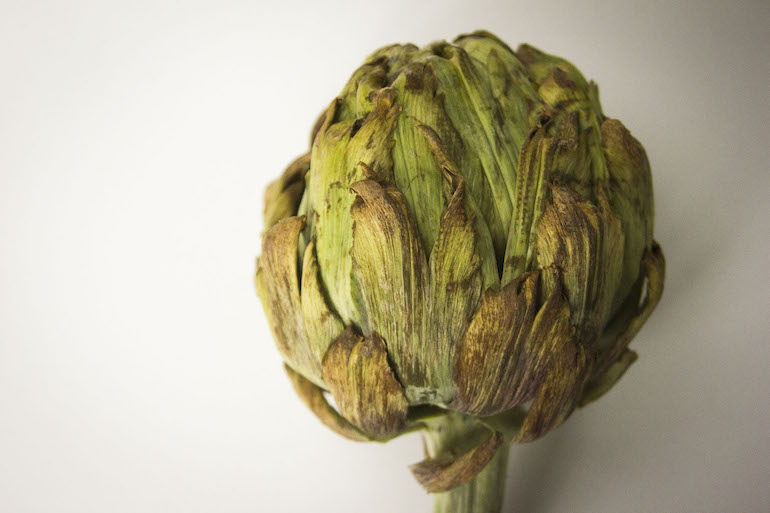
(Photo by Natsuko Mazany)

(Photo by Natsuko Mazany)
Halley Rose Meslin is a sophomore at Indiana University studying environmental and sustainability studies and French. Natsuko Mazany is a senior at Indiana University studying communications and culture, as well as Japanese. Halley and Natsuko heard of Planet Forward’s Storyfest 2016 contest through an email that was sent to them. For their submission, Halley and Natsuko created a photo story focused on food beauty standards and how they cause consumers to have unrealistic expectations of how fruit and vegetables should look.
We asked them a few questions to learn more about their entry.
Q: Describe your innovation/the problem you are trying to solve in simple terms for those who have never heard of it before.
A: One-third of all food produced each year is wasted, and 20% is wasted because of how it looks. Food is thrown out at many levels in the supply chain because it’s considered “ugly.” To raise awareness about the “ugly” food waste, we hosted the Ugly Food Challenge at Indiana University. The event included a photography workshop, where we taught participants how to make rejected produce look beautiful in photos, and a discussion about the impact of “foodie” culture on food waste.
Q: What was your inspiration behind this innovation? How did you come up with this idea?
A: College students are very social media savvy and those skills can be put to use to spread awareness about the benefits of eating “ugly” food. This event prompted students to look at social media in a new way, examine their own prejudices about how food looks and think about how to make the IU campus more sustainable. By incorporating an interactive photography workshop, this event gave students the chance to be active participants. Taking pictures of “ugly” fruit and vegetables is the first step in creating a culture that accepts misshapen and wonky produce.
Q: What was the process behind creating your submission? Why did you choose to communicate your innovation through this photographic format?
A: The process of creating this submission involved several collaborations. We applied and received a Food & Wine magazine grant in partnership with the website, Spoon University to fund the project. The Ugly Food Challenge was a hosted by two Indiana University student organizations: Spoon University and Oxfam Club. The Hutton Honors College co-sponsored the event and we received a donation of “ugly” produce from Lucky’s Market.
At the event, we had Spoon photographers lead the photography workshop and teach participants how to make the produce look delectable. We choose to use this visual format to prompt discussion about beauty standards and give participants a behind-the-scenes take on food photography.
Q: Why is this innovation so important to you? Why do you think it is one of the most essential methods to help sustainable cities?
A: Our Ugly Food event was important to us because it allowed us to collaborate and discuss food culture with our fellow students in a way that left many feeling optimistic about how to address problems of food waste. We both contribute to IU’s chapter of the food website, Spoon University, where we write recipes and restaurant reviews among other articles. We felt that is it was important for our website to address all aspects of food, including waste.
Though this “innovation” isn’t physical, it has important implications for food sustainability. Many people are unaware of the amount of time and money that is spent on food photography to make it look flawless and delicious. By informing people about wasteful food photography and embracing the beauty found in food that is imperfect, we aimed to start a trend of buying “ugly” produce.
Sustainable cities require collaboration among community members and diverse, interdisciplinary responses to problems. Food waste happens at many levels in the food system and addressing consumer attitudes about ugly food is just one way to help reduce it. By focusing on a narrow aspect of the problem, we started a food sustainability conversation at our university and hopefully inspire future leaders in sustainability to use creativity and community-building events as a way to promote positive change.
(Editor’s note: Answers edited for grammar and spelling.)